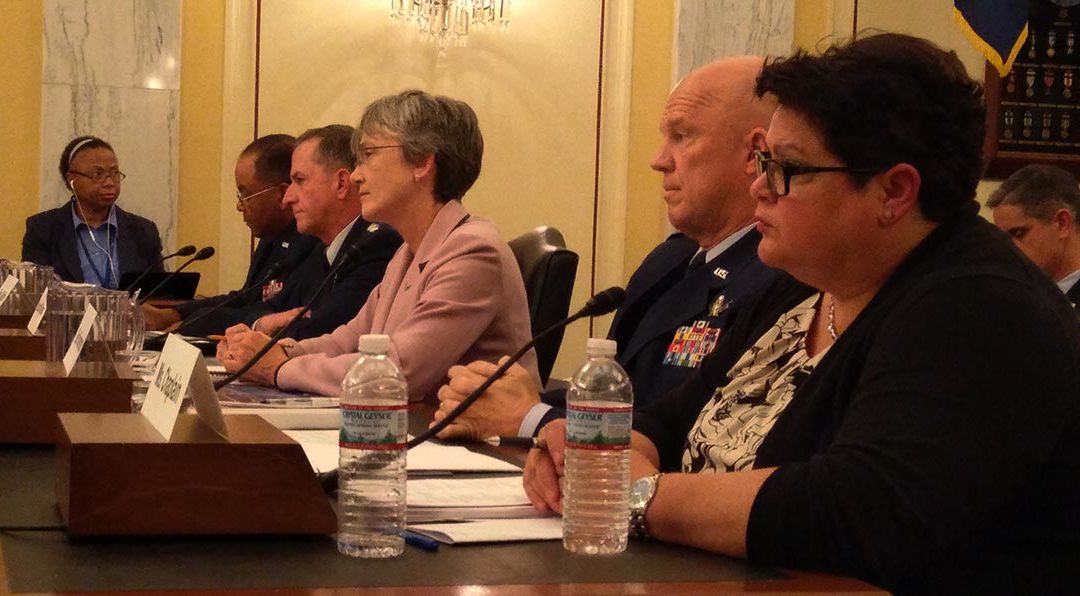by Jingnan Huo
WASHINGTON — U.S. space spending is expected to increase in the coming fiscal year, and some of the money will go toward better protection for military satellites, newly confirmed Air Force Secretary Heather A. Wilson told a Senate committee.
Wilson on Wednesday said the Air Force also will focus on faster restoration of capabilities after an attack.
The military relies heavily on satellites to gather information and coordinate movements, but they are vulnerable to attack, she said.
Eighty percent of U.S. space operations are based in the Air Force, Wilson told the Strategic Forces Subcommittee of the Armed Services Committee.
She also said a detailed budget plan will be rolled out next week.
While the United States has advantage in space over other countries, it “is not an American birthright,” Gen. David L. Goldfein, chief of staff of the Air Force, told the committee.
Goldfein advocated for a “layered defense,” which involves having more satellites and putting the satellites on multiple platforms and systems, thus making backup capability more readily available when parts of the system are under attack.
The approach is comparable to switching from several big eggs in one basket into more smaller eggs in more baskets, Phillip Iohaus, research fellow at the Marilyn Ware Center for Security Studies, said in a telephone interview.
Sen. Elizabeth Warren, D-Mass., asked if the Air Force should have more partnerships with the private sector to remain on top of the technology and save money. Wilson and Goldfein said they are studying reusable rockets, such as those SpaceX developed, but declined comment on whether they have been approached by SpaceX.
Iohaus said private firms want assurances that money is available to continue partnerships.
Echoing Goldfein’s point, Adam Routh, a defense strategies research associate at the Center for a New American Security, said the Air Force should allocate more resources for increasing its resilience to attacks.
Because U.S. adversaries are not as reliant on space technology for defense, the U.S. military cannot retaliate in kind if its enemies jeopardize U.S. satellites by jamming signals or destroying them, said Routh.
The Air Force leaders are concerned about Russia and China, which are investing heavily in space technology, but noted the two countries are still far behind the United States.


